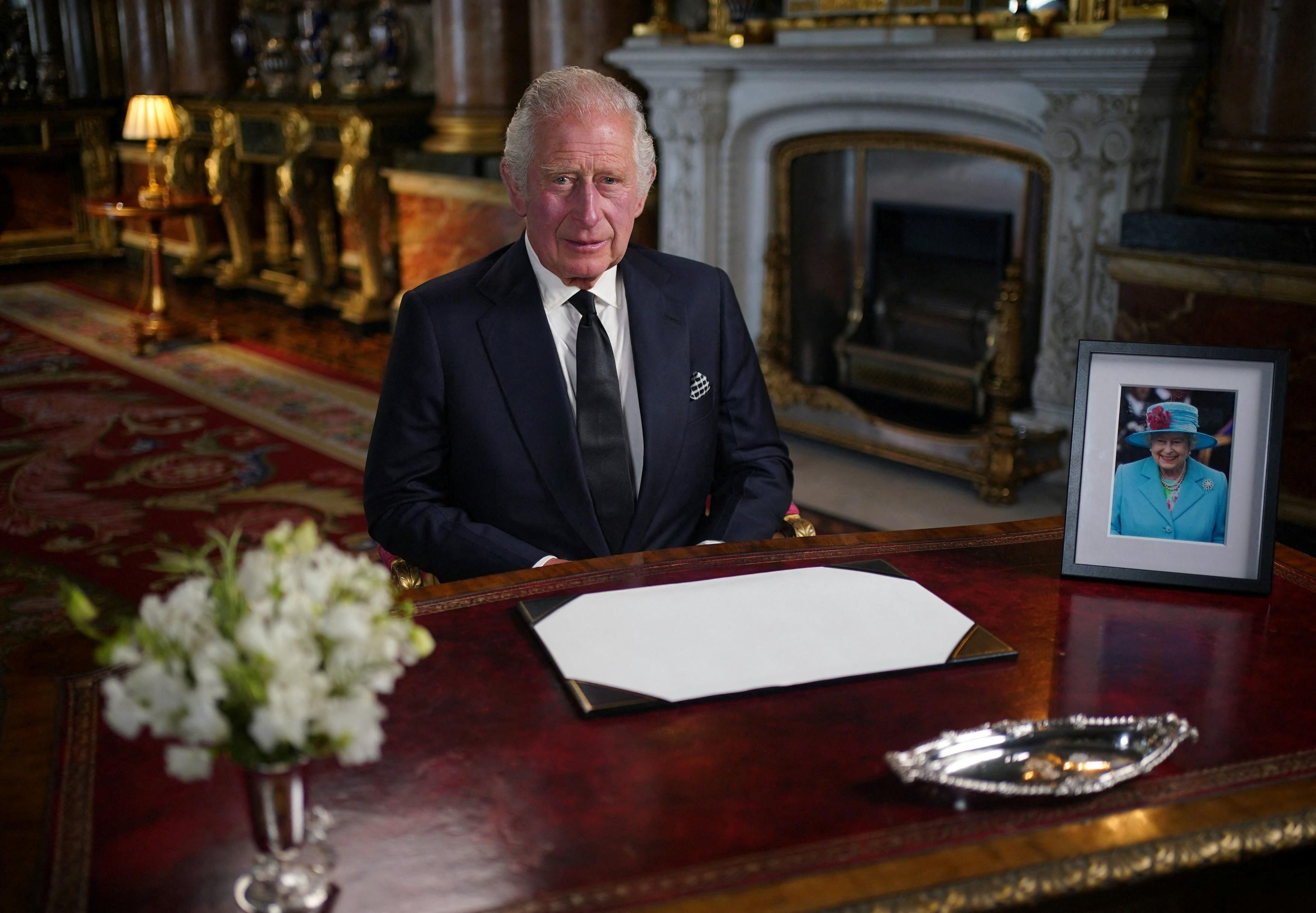King Charles III makes first public address as monarch
King Charles III addressed the United Kingdom, the Commonwealth, and the world on Friday with a public address following the death of his mother, Queen Elizabeth II. Striking both a personal and formal tone, Charles paid tribute to his “darling mama” and her “unswerving devotion” to Britain. In discussing his faith, Charles said he was brought up to “cherish a sense of duty to others,” and he vowed to “solemnly pledge [himself] … to uphold the constitutional principles at the heart of our nation.” He also spoke about the changing roles of his wife, Camilla, his Queen Consort, and his son William and daughter-in-law, Katherine, who now assume the titles of Prince and Princess of Wales. As Charles’s address aired, a service of remembrance was held for the late monarch at London’s St. Paul’s Cathedral. Attendees included Britain’s newly installed prime minister, Liz Truss, who had her first meeting with the king earlier on Friday at Buckingham Palace. The queen’s coffin remains at Balmoral and will be moved this weekend to Holyrood, the royal residence in Edinburgh, where King Charles III – officially proclaimed the monarch on Saturday – and the Queen Consort will head on Sunday. A service will be held for the queen in Edinburgh on Sunday before her coffin is moved to London. Her funeral is expected to take place within two weeks at Westminster Abbey. World leaders, including President Joe Biden, will attend, paying tribute to a queen who worked with 15 prime ministers and met 13 US presidents throughout her 70-year reign.
IAEA warns of potential nuclear catastrophe at Zaporizhzhia
The head of the International Atomic Energy Agency, Rafael Mariano Grossi, reiterated on Friday that a safe zone needs to be established around the Zaporizhzhia nuclear plant in southern Ukraine. The plant, Europe’s largest nuclear facility, came under Russian control at the beginning of the war – though Ukrainian staff continue to operate it. The plant accounted for
20% of Ukraine’s electricity production before the conflict and is coveted by Moscow because of its geographical proximity to Russian-occupied Crimea. Grossi issued a
dire warning, saying that the situation at the plant – repeatedly hit by shelling that Russia and Ukraine blame on each other – is “unsustainable” and “increasingly precarious.” The plant has been
cut off from Ukraine’s electricity grid since Monday, running on “emergency mode'' and relying heavily on diesel generators that will soon run out of fuel. These factors mean the risk of a nuclear catastrophe is steadily rising in a country long traumatized by the deadly events of the 1986 Chernobyl disaster. Meanwhile, the IAEA Board of Governors, made up of 35 countries, meets
next week, when it’s likely to pass a resolution calling on Russia to immediately withdraw from the nuclear site. But this will be largely symbolic as the group cannot force Moscow to abide by its resolution.
